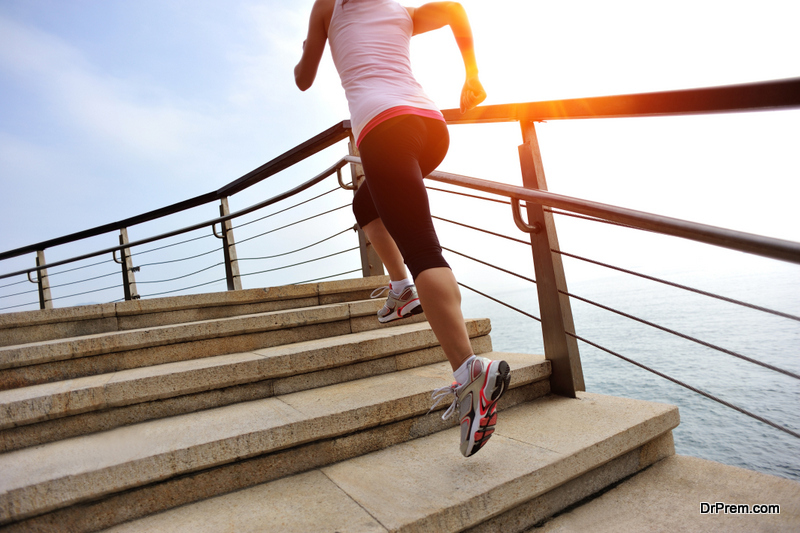Exercise has many benefits, like low blood pressure, weight control, and increased energy. What many people still do not know is that exercise has psychological benefits too. Especially, walking can alleviate the symptoms of anxiety and depression, sharpen memory, and so on. If you need the motivation to hit the road, these mental health benefits will be more than enough to make you tie your walking shoes and head out towards the nearby park or just stroll around the streets.
1. Enhances self-confidence and self-esteem
 Not only that walking helps lose weight and increases muscle tone, but it also boosts self-esteem. The achievements regarding improvement in physical traits add up to a person’s self-confidence as well as self-esteem. Furthermore, it imparts a sense of purpose and achievement on the person that improves the said qualities without even letting you realize. Walking is good for your physical as well as mental well-being.
Not only that walking helps lose weight and increases muscle tone, but it also boosts self-esteem. The achievements regarding improvement in physical traits add up to a person’s self-confidence as well as self-esteem. Furthermore, it imparts a sense of purpose and achievement on the person that improves the said qualities without even letting you realize. Walking is good for your physical as well as mental well-being.
2. Helps with anxiety
Physical activity is an effective, natural anti-anxiety and antidepressant. Walk can be considered as the best of the best in this regard. Other forms of exercise do not suit everyone and can be exhausting. But this form of physical activity relieves stress and tension while increasing physical and mental energy.
It enhances the overall mental well-being by stimulating the release of endorphins. It can put your mind in a meditative state if you pay attention to your inner self while walking rather than zoning out. Try to feel your feet hitting the ground, your rhythm of breathing, and the wind touching your skin. This mindfulness helps your mind forget or push back the stressful memories running through your head and alleviates your mood. Moreover, it enables you to improve your physical condition, as you will be focusing more on your body.
3. Helps with depression
 Several studies have shown that walk can relieve the symptoms of mild to moderate depression. Its effectiveness is more or less similar to the antidepressant medication. The only difference is that walking does not involve any side effects. A recent study has shown that walking for an hour lowers the risk of depression by 26 percent. Research also shows that sticking to an exercise schedule can save a person from relapse.
Several studies have shown that walk can relieve the symptoms of mild to moderate depression. Its effectiveness is more or less similar to the antidepressant medication. The only difference is that walking does not involve any side effects. A recent study has shown that walking for an hour lowers the risk of depression by 26 percent. Research also shows that sticking to an exercise schedule can save a person from relapse.
Walking induces the release of endorphins, which are stress-busting hormones. Therefore, it can play a crucial role in alleviating anxiety and depression. Moreover, walking can also enable the mind to meditate, which helps a lot with depression.
4. Boosts Brain Power
Walking can augment a person’s cognitive skills. It improves intelligence and memory. Several studies suggest that physical activity can lead to neurogenesis—a process of the creation of new brain cells. It further improves the overall performance of the brain.
Research shows that walking can also prevent memory loss and cognitive decline by strengthening the hippocampus. This part of the brain is concerned with memory and learning. It is also known to boost mental energy and creativity.
5. Improves Sleep
 Sleep quality and duration are vital to good mental health. Walking increased the release of melatonin—a sleep hormone. According to a study, thirty minutes of walking every day can improve the quality as well as the duration of your sleep. Several experts maintain that walking entails more benefits than other forms of exercise like swimming, jogging, and hiking with regards to restful sleep. In fact, intense exercise is recommended against right before bed. However, doctors suggest taking a light-paced stroll for it will clear the mind and help improve sleep quality.
Sleep quality and duration are vital to good mental health. Walking increased the release of melatonin—a sleep hormone. According to a study, thirty minutes of walking every day can improve the quality as well as the duration of your sleep. Several experts maintain that walking entails more benefits than other forms of exercise like swimming, jogging, and hiking with regards to restful sleep. In fact, intense exercise is recommended against right before bed. However, doctors suggest taking a light-paced stroll for it will clear the mind and help improve sleep quality.
If you really want to start walking for improving your mental and emotional health, creating a walking routine is the way to go. Stick to your routine with determination and resolve. Soon, you will start seeing the results.
Selecting the right shoes
The kind of shoes you wear for walking is very important. Many brands offer shoes that are specifically designed for walking. If you do not want to invest in that, just wear the ones that fit and are comfortable. Your shoes should provide support instead of being constructive or snug. A heel pad and a padded tongue help a lot with walking. Moreover, the uppers should be flexible and breathable whole the sole at the back should be thicker (ideally twice) than at the front.
Article Submitted By Community Writer




